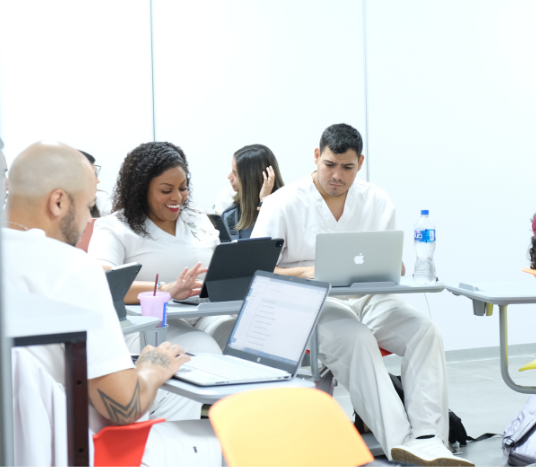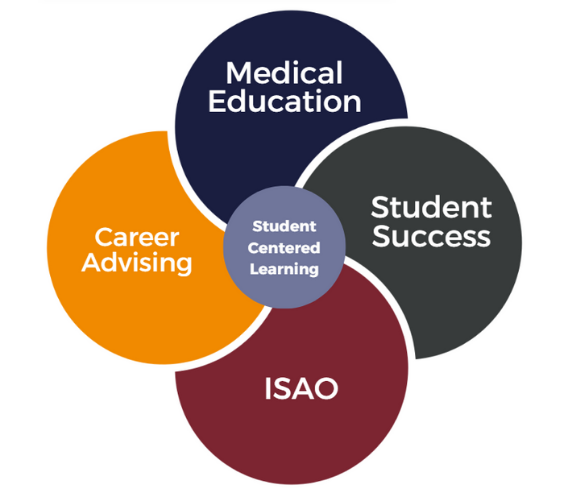


THE UAG CURRICULUM
hands-on starting first semester
Our four-year MD program features an integrated, system-based approach that provides a comprehensive understanding of human biology and disease processes. The curriculum prioritizes student-centered learning, fostering critical thinking by introducing concepts from multiple perspectives.
With an emphasis on early hands-on experience, students receive an intensive medical education that builds a solid foundation before progressing to clinical rotations and residency programs in the U.S.
The program is divided into Basic Sciences (MS1 & MS2) and Clinical Sciences (MS3 & MS4), ensuring a seamless transition from academic knowledge to real-world medical practice.
MS1
Year 1 at UAG: Building a Strong Foundation in Medical Education
In Year 1, students receive comprehensive support while building a solid foundation in anatomy through our innovative systems-based approach. From Semester 1, students gain hands-on experience by participating in community medical brigades, where they develop clinical reasoning and skills under the supervision of experienced clinical faculty.
Additionally, the Clinical Skills Development (CSD) Program equips students with the practical abilities needed to become competent and compassionate healthcare providers, ensuring a well-rounded start to their medical journey.
Year 2 at UAG: Preparing for Clinical Clerkships and USMLE Step 1
In Year 2, our curriculum focuses on preparing students for both clinical clerkships and the USMLE Step 1 exam. This phase is critical as students apply their theoretical knowledge to real-world clinical scenarios, integrating past and present learning for a thorough understanding of medical concepts.
During this year, students develop essential clinical skills in patient assessment, diagnosis, and treatment management, ensuring they are well-prepared for success in clinical environments. This structured approach lays a solid foundation for excelling in the USMLE exams and beyond.

Year 3 at UAG: Immersive Clinical Clerkships and Hands-On Patient Care
In Year 3 of medical education at UAG, students immerse on 48 weeks of clinical clerkships, immersing themselves in hands-on patient care to sharpen essential clinical skills. Under the guidance of experienced supervising physicians, students engage directly with patients in real-world medical settings, applying their medical knowledge and building critical skills necessary for success in clinical practice.
Year 4 at UAG: 44 Weeks of Elective Clerkships and Residency Preparation
In Year 4 of your medical education at UAG, students engage in 44 weeks of elective clerkships, turning hospitals into classrooms for hands-on learning and clinical experience. This crucial phase allows students to solidify and expand their foundational medical knowledge while exploring potential residency options. Year 4 plays a pivotal role in preparing students for the transition to post-graduate life and future medical practice.
